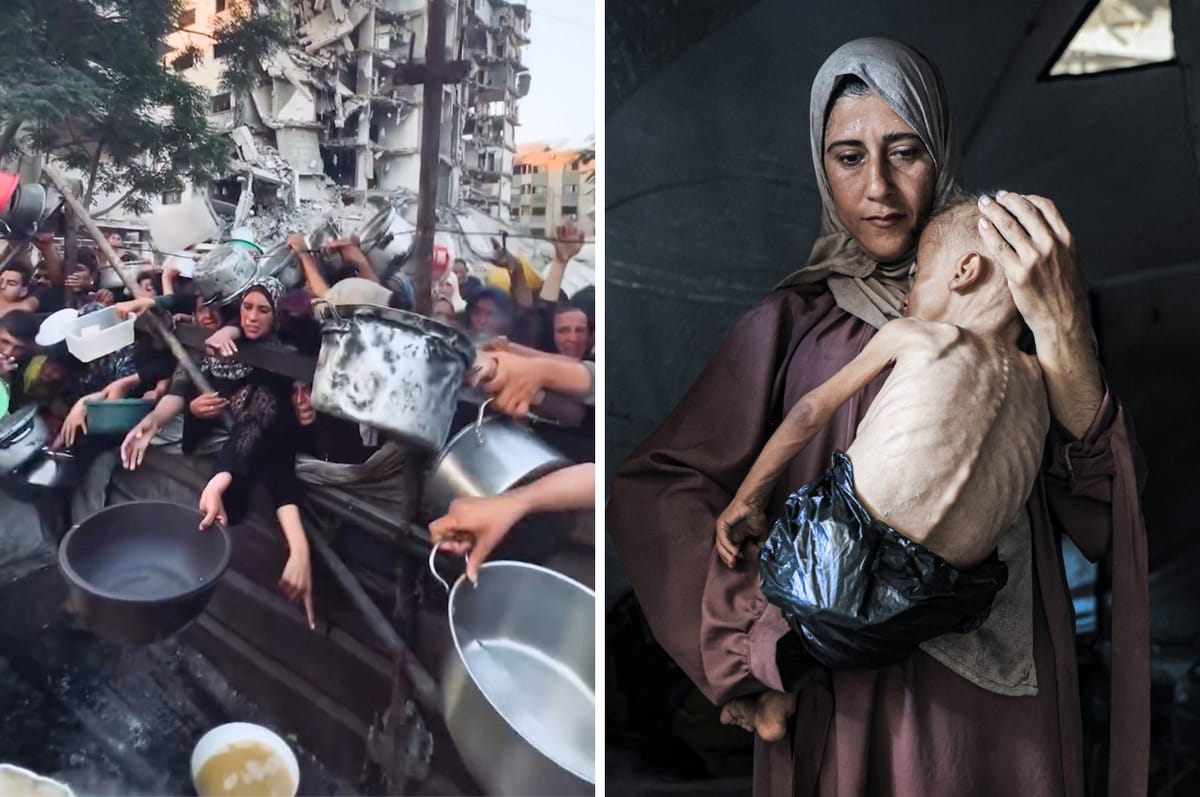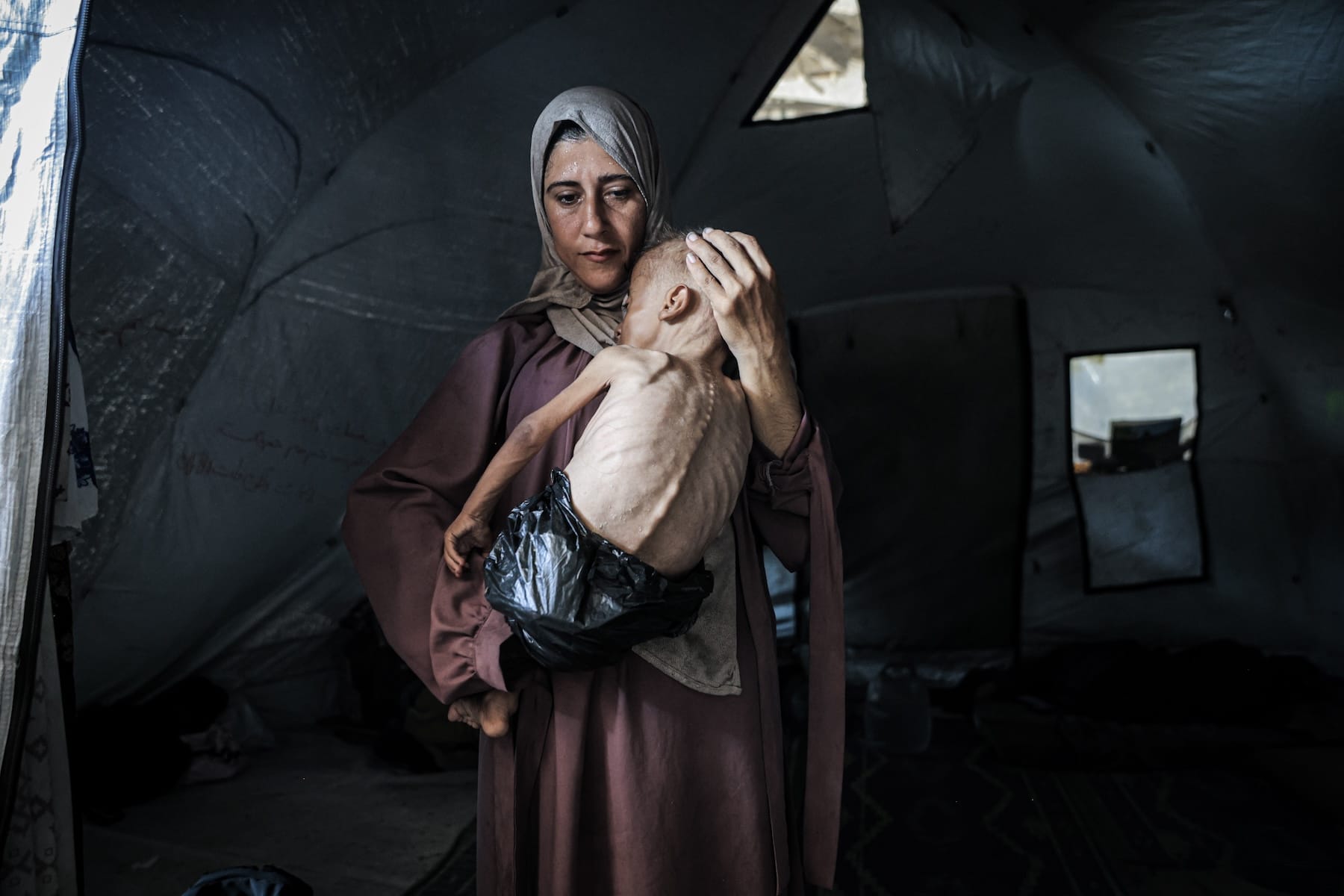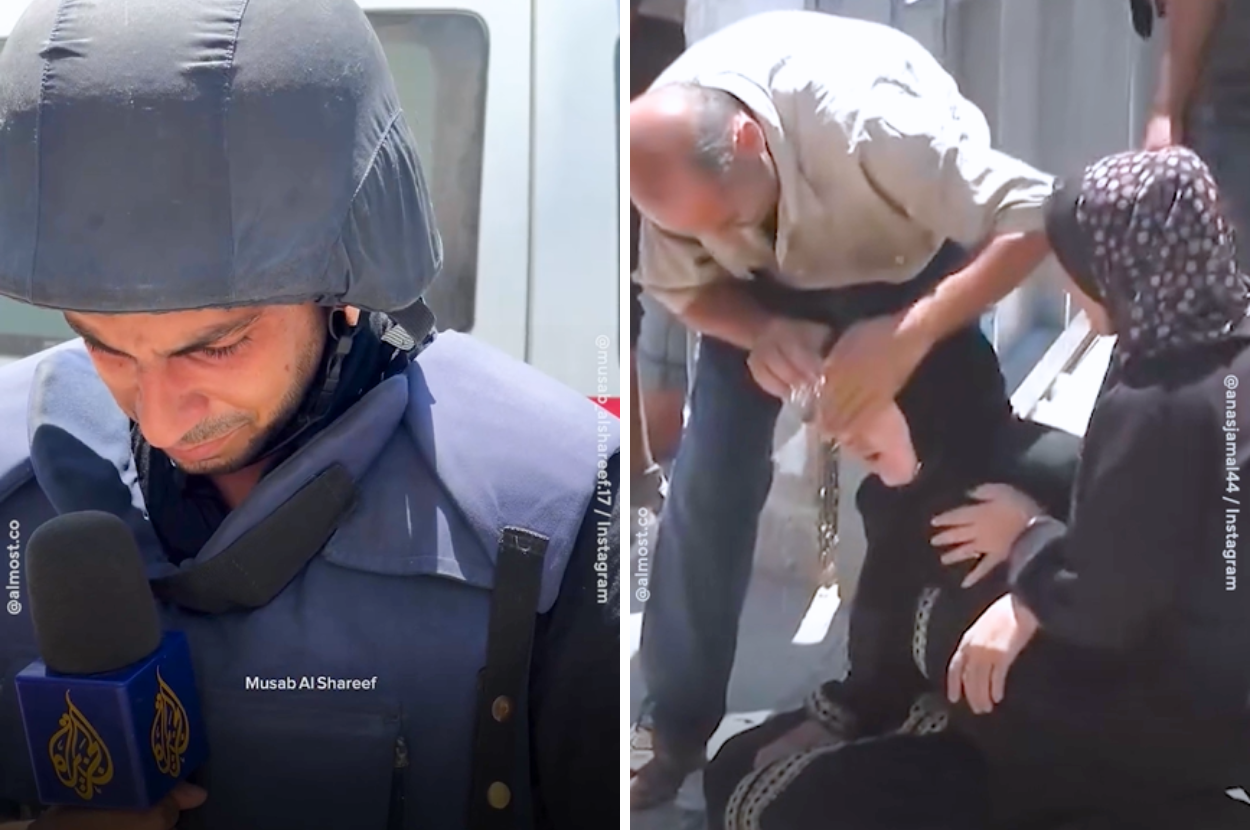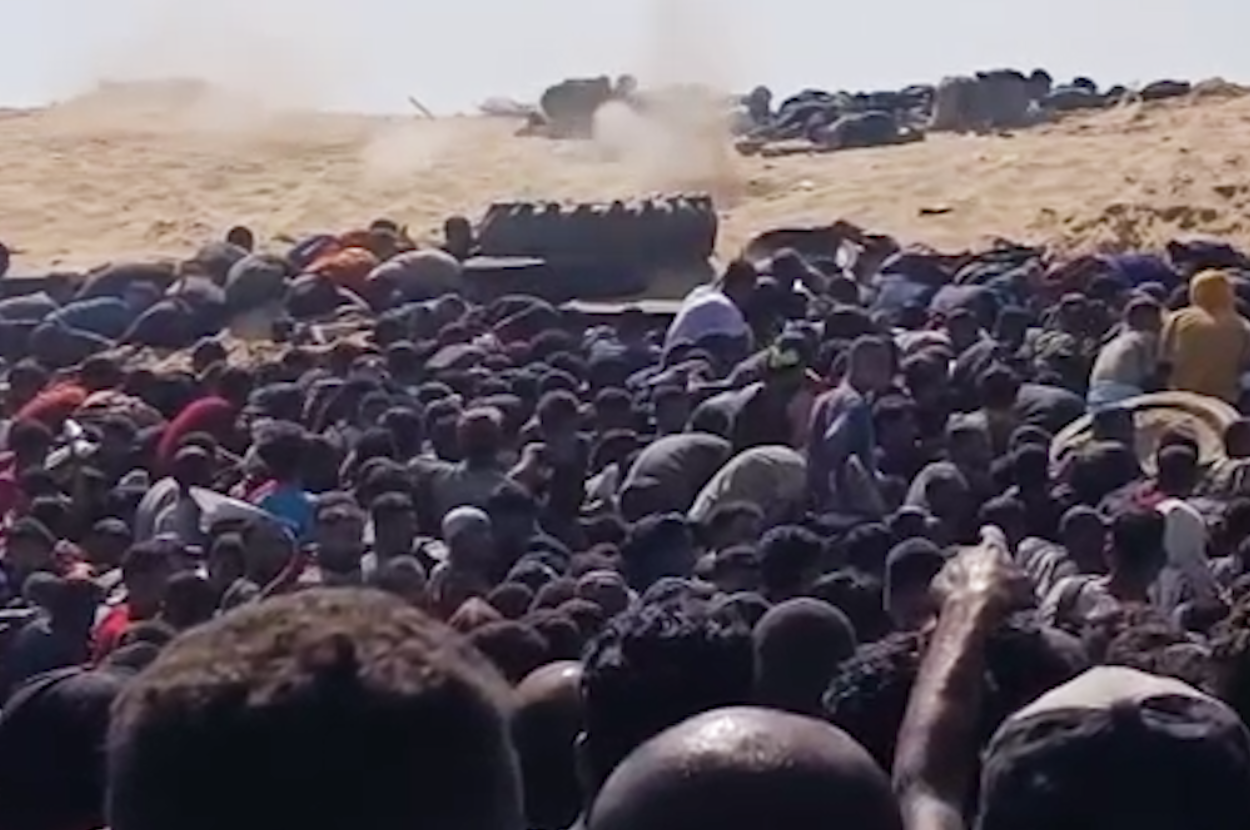Gaza Is Now Experiencing "The Worst-Case Scenario Of Famine", The Global Hunger Monitor Said
The IPC said that latest data from July 25 had indicated that two out of three famine thresholds had already been crossed in Gaza.

The global hunger monitoring system, the Integrated Food Security Phase Classification (IPC), has issued a warning saying that the "worst-case scenario of famine” is now unfolding in Gaza as Israel's genocide has now killed more than 60,034 Palestinians in the strip.
“Mounting evidence shows widespread starvation, malnutrition and disease are driving a rise in hunger-related deaths,” the IPC said on Tuesday, July 29, adding that “access to food and other essential items and services has plummeted to unprecedented levels” due to intensified violence and displacement caused by Israel.
It said that latest data from July 25 had indicated that two out of three famine thresholds had already been crossed.
Famine is formally classified as a situation where at least 20% of households face an extreme lack of food; at least 30% of children are acutely malnourished; and two people or four children out of every 10,000 die daily from starvation-related causes.
In its alert, the IPC found that one in three people are going without food for days at a time in Gaza, crossing the 20% threshold for extreme lack of food.
The IPC also found that Gaza City had reached the malnutrition famine threshold, with more than 20,000 children being admitted and treated for acute malnutrition between April and mid-July.

It said that hospitals have also reported a rapid increase in children under five dying from hunger-related causes, with at least 16 children under five dying since July 17.
The report also found that people’s access to food across Gaza is now “alarmingly erratic and extremely perilous”, with more than 1,000 people having been killed since May while trying to access food.
It said that despite Israel easing its blockade on May 19, “only a trickle of humanitarian assistance, mostly food” had entered the Gaza Strip.
It found that the over 89 million meals the Israeli- and US-backed Gaza Humanitarian Foundation (GHF) claimed to have distributed were not ready-to-eat and require water and fuel to cook, which are largely unavailable.
The IPC also pointed out that GHF’s four distribution sites are on militarized zones — where less than a quarter of the population is located — and operate on a first-come, first-serve basis, which has made it near impossible for most vulnerable groups to access the food as it requires long, high-risk journeys.
The IPC said immediate action was required to alleviate the catastrophic suffering of Palestinians in Gaza, including scaling up the flow of goods, restoring basic services and ensuring there is safe and unimpeded access to sufficient life-saving assistance, adding that none of this is possible without a ceasefire.
Humanitarian agencies and international organizations said that “this is not a crisis that can be met with half-measures,” urging immediate full, safe and large-scale humanitarian access, protection for civilians and aid workers.
Intentionally starving civilians as a method of warfare is a war crime under international humanitarian law.
More On Israel's Genocide In Gaza











